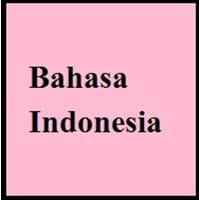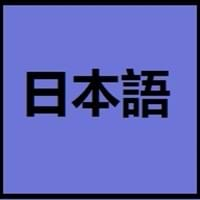Indonesian vs Japanese
Countries
Indonesia
Japan
National Language
Indonesia
Japan
Second Language
East Timor, Indonesia
Not spoken in any of the countries
Speaking Continents
Asia
Asia, Pacific
Minority Language
Denmark, East Timor, Netherlands
Palau
Regulated By
Badan Pengembangan dan Pembinaan Bahasa
Agency for Cultural Affairs (文化庁) at the Ministry of Education
Interesting Facts
- The modern Indonesian language uses many loan words from Persian, Chinese and Arabic.
- In Indonesian language, spelling is phonetically precise, so that words are spelled as they sound.
- In Japanese Language, there are 4 different ways to address people: kun, chan, san and sama.
- There are many words in Japanese language which end with vowel letter, which determines the structure and rhythm of Japanese.
Similar To
Malay language
Korean Language
Derived From
Malay and Dutch Languages
Not Available
Alphabets in
Indonesian-Alphabets.jpg#200
Japanese-Alphabets.jpg#200
Writing Direction
Not Available
Left-To-Right, Horizontal, Top-To-Bottom
Hello
Halo
こんにちは (Kon'nichiwa)
Thank You
Terima kasih
ありがとう (Arigatō)
How Are You?
Apa kabar?
お元気ですか (O genki desu ka?)
Good Night
Selamat Malam
おやすみなさい (Oyasuminasai)
Good Evening
Malam yang baik
こんばんは (Konbanwa)
Good Afternoon
Selamat Sore
こんにちは (Konnichiwa!)
Good Morning
Selamat Pagi
おはよう (Ohayō)
Please
mohon Untuk
お願いします (Onegaishimasu)
Sorry
maaf
ごめんなさい (Gomen'nasai)
Bye
Selamat tinggal
さようなら (Sayōnara)
I Love You
Aku cinta kamu
愛しています (Aishiteimasu)
Excuse Me
Permisi
すみません (Sumimasen)
Dialect 1
Sundanese
Sanuki
Where They Speak
Indonesia
Kagawa
Dialect 2
Balinese
Hakata
Where They Speak
Bali, Indonesia, Lombok and Java, Nusa Penida
Fukuoka
How Many People Speak
Not Available
Dialect 3
Minangkabau
Kansai
Where They Speak
Indonesia, Malaysia
kansai
How Many People Speak
Not Available
Second Language Speakers
Not Available
Native Name
Bahasa Melayu
日本語
Alternative Names
Bahasa Indonesia
Not Available
French Name
indonésien
japonais
German Name
Bahasa Indonesia
Japanisch
Pronunciation
Not Available
/nihoɴɡo/: [nihõŋɡo], [nihõŋŋo]
Ethnicity
Indonesians
Japanese (Yamato)
Language Family
Austronesian Family
Japonic Family
Subgroup
Indonesian
Not Available
Branch
Not Available
Not Available
Early Forms
Old Malay
Old Japanese, Early Middle Japanese, Late Middle Japanese and Early Modern Japanese
Standard Forms
Indonesian
Japanese
Signed Forms
Sistem Isyarat Bahasa Indonesia (SIBI, "Signed Indonesian")
Signed Japanese
Scope
Individual
Individual
ISO 639 6
Not Available
Not Available
Glottocode
indo1316
nucl1643
Linguasphere
No data available
45-CAA-a
Language Type
Living
Living
Language Linguistic Typology
Subject-Verb-Object
Subject-Object-Verb
Language Morphological Typology
Agglutinative
Agglutinative, Synthetic
Indonesian and Japanese Language History
Comparison of Indonesian vs Japanese language history gives us differences between origin of Indonesian and Japanese language. History of Indonesian language states that this language originated in 7th Century whereas history of Japanese language states that this language originated in 1185. Family of the language also forms a part of history of that language. More on language families of these languages can be found out on Indonesian and Japanese Language History.
Indonesian and Japanese Greetings
People around the world use different languages to interact with each other. Even if we cannot communicate fluently in any language, it will always be beneficial to know about some of the common greetings or phrases from that language. This is where Indonesian and Japanese greetings helps you to understand basic phrases in Indonesian and Japanese language. Indonesian word for "Hello" is Halo or Japanese word for "Thank You" is ありがとう (Arigatō). Find more of such common Indonesian Greetings and Japanese Greetings. These greetings will help you to be more confident when conversing with natives that speak these languages.
Indonesian vs Japanese Difficulty
The Indonesian vs Japanese difficulty level basically depends on the number of Indonesian Alphabets and Japanese Alphabets. Also the number of vowels and consonants in the language plays an important role in deciding the difficulty level of that language. The important points to be considered when we compare Indonesian and Japanese are the origin, speaking countries, language family, different greetings, speaking population of these languages. Want to know in Indonesian and Japanese, which language is harder to learn? Time required to learn Indonesian is 36 weeks while to learn Japanese time required is 88 weeks.





